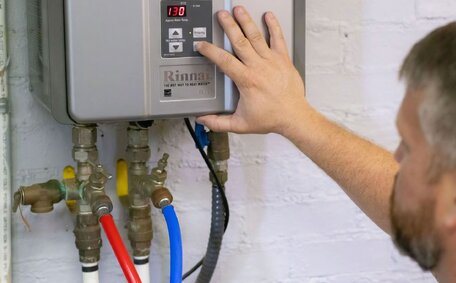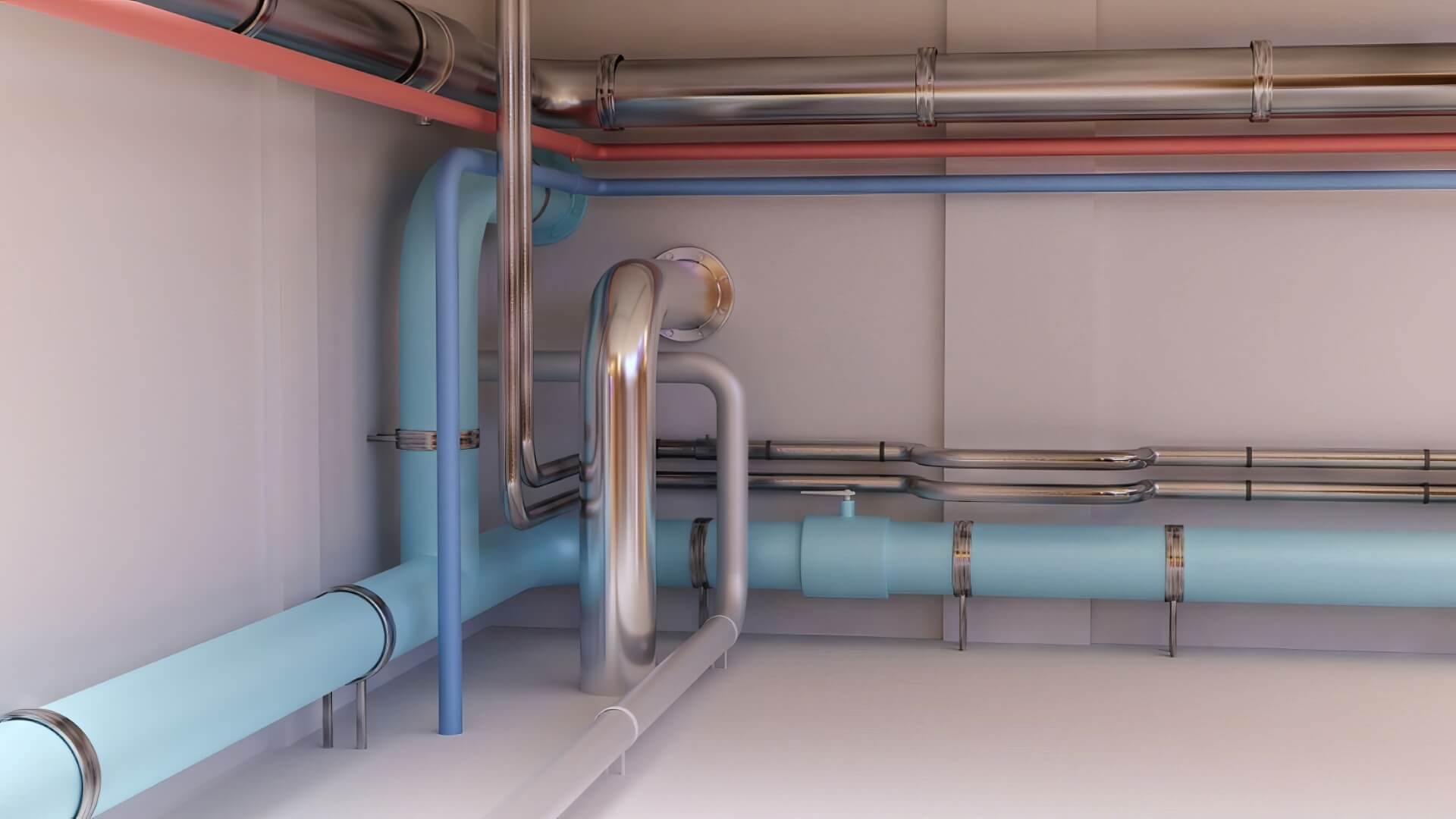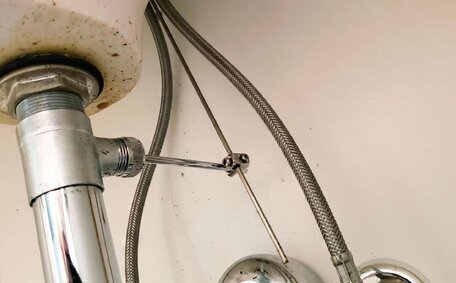Understanding when your septic tank needs attention
Experts recommend pumping your septic tank every three to five years, with the exact frequency depending on your household’s water usage and tank size.
Neglecting routine septic tank maintenance can lead to expensive repairs, sewage backing up into your home, and potential health and environmental hazards. Regular assessment of your septic system is essential to detect the need for maintenance and prevent future complications.
Keep an eye out for these clear indicators that your septic tank urgently requires attention:
- Sewage odours around your septic tank or your drainfield
- Standing water, lush vegetation, or soggy soil around the tank or drain field
- When showers, sinks, and toilets drain slowly, it often means your septic tank needs cleaning.
- Gurgling noises in your plumbing are a common sign that your septic tank is close to full capacity.
- Sewage backing up into your home
Should you observe any of these warning signs, especially unaccountable changes in your lawn, arrange for a professional inspection of your septic system promptly. An experienced septic service can address the situation and pump out your tank when septic tank needs emerge, troubleshoot issues with your sewer line and septic tank drain field, and perform repairs to restore optimal function.
To prevent a major clog or backup, respond immediately to septic system warning signs and contact Glenwood Plumbing for expert assistance. Address issues at the first sign of septic system trouble to ensure smooth operation year-round. Protect your plumbing, prevent health hazards, and avoid destruction to your property by getting your tank pumped at the early signs of septic problems.
Recognizing slow drainage as an indicator of septic issues
If your sinks and toilets are draining slowly, it’s likely a sign to check your septic tank. Noticing drains emptying slower than normal often indicates a buildup of solids in the tank, impeding the proper filtration of wastewater.
As more solid waste accumulates and clogs components of your system, drainage will progressively worsen. Gurgling sounds during drainage and toilets requiring multiple flushes indicate your septic system is struggling. Slow drainage is a clear sign your septic tank is failing to manage and disperse wastewater properly.
Left unchecked, slow drains can ultimately result in water backing up into your home - posing serious health hazards, plumbing damage, and an extremely unpleasant mess requiring emergency cleanup. It’s imperative to seek professional service to address slow drainage before the situation worsens.
An experienced technician, now part of our team, can effectively manage your septic services, including when your tank needs emptied and requires thorough maintenance. Identifying slow drainage promptly can help avoid destructive sewer backups and ensure proper functioning of your septic system.
Identifying sewage backups that require urgent pumping
Sewage backup events into your home aren’t merely a smelly nuisance – they also present serious health hazards that require immediate action. Should you encounter foul odours, overflowing wastewater from sinks, showers, or toilets, or see sewage pooling around your tank or yard, immediately seek professional help.
Contact with raw sewage from backups can lead to serious infections due to bacteria, viruses, and parasites. That’s why you should never attempt to unclog backups on your own using chemical drain openers or objects that could damage your pipes.
Professionals equipped with the appropriate tools for septic tank cleaning can safely eliminate blockages and remove backed-up waste. They will tackle your full tank needs, dispel any clogs in distribution pipes, and perform any repairs needed to get your system flowing freely again.
The longer sewage backups persist, the greater the threat of property damage as contaminants seep deeper into floors, walls, and foundations. To contain potential messes, call a professional at the first signs of septic clogs.
Act quickly upon detecting any signs of sewage backup to protect your home, health, and the environment. Don’t attempt makeshift repairs that could worsen the situation - skilled assistance is imperative.
Noticing lush vegetation as a sign of septic leakage
If you spot areas of lush green, rapid plant development in your yard near your septic tank or drain field, this could signify that nutrient-rich wastewater is leaking from your system and fertilising the soil. Such verdant growth may add charm to your landscape, but it also serves as a beacon to indicate your septic system is leaking and needs professional attention.
Leaks from your septic system may result in waterlogged soil, the potential for flooding, and progressive damage. It can also lead to sewage contamination in surrounding areas. Plus, if wastewater isn’t properly filtering through your drain field as designed, it could mean costly repairs are needed to restore proper functionality.
Call a seasoned septic professional to inspect any uncharacteristically lush areas near your tank or drain field. They can detect leaks, assess your drain field function, pump out solid waste if required, and determine if any components need to be repaired or replaced.
Acting instantly when you observe unusually dense plant growth outside your property helps prevent complete system breakdowns, so don’t hesitate to call us for assistance. Make that call as soon as you spot these red flags to protect your yard, home, and health from the hazards of a compromised septic system.
Spotting pooling water indicating septic overflow
If you notice pooling water or soggy soil around your septic tank or drain field area, this is a telltale sign that your system may be overflowing. When water is unable to properly drain through an overloaded tank or clogged field lines, it can bubble up to the surface.
Water pooling around your septic system signals an urgent need for professional pumping services. Such an overflow scenario underscores that it’s time for immediate septic pumping action as it puts your property at risk of flooding, contamination, and unwelcome backups.
Water gathering around the tank typically indicates that your septic tank is at full capacity and cannot accommodate more incoming wastewater. Therefore, regular pumping based on household size and water consumption is critical to prevent system overflows.
If you spot standing water in your drain field, that likely signals a clog in the field lines preventing filtration. Tree roots, soil disruption, or even excess solids escaping your tank can cause field line issues. An expert contractor will quickly diagnose and remedy such issues.
Don’t hesitate to call us right away if you observe pooling water around your tank or field. Timely pumping and repairs can get your failing system flowing properly again,
Preventing complete septic system failure
There are several key strategies to help prevent complete failure of your septic system:
- Have tank cleaning and professional inspection conducted every 3-5 years and pumped when needed. Maintaining your septic tank regularly is key to its extended performance and lifespan.
- Practise water conservation habits to avoid overloading the system. Fix any leaky faucets and spread laundry loads throughout the week.
- Choose septic-safe products such as liquid detergents to avoid destroying beneficial bacteria in your tank.
- Avoid flushing non-biodegradable items like wet wipes and grease to prevent clogs, and install a grease trap to enhance efficiency.
- Keep a vigilant eye for warning signs such as foul odours, soggy ground, backed up drains, or pooling water and swiftly contact a professional.
- Have your drain field examined if you notice overly lush grass or rapid plant growth which could indicate wastewater leaks.
- Consider upgrading your old steel tank to a modern fibreglass model for increased durability and water flow efficiency.
Following best practises for septic system maintenance, including successfully installed health measures, goes a long way towards preserving your tank. Be aware of red flags to know about what might signal emerging issues, and contact an expert right away at any signs of potential system failure to avoid costly damage or hazardous overflows.
Conducting professional septic maintenance
Regular professional maintenance, including septic pumping, is essential for prolonging your system’s lifespan. Experienced septic contractors are equipped with specialised knowledge and tools to thoroughly inspect septic tanks, pump out waste, clear clogs, conduct repairs, and more.
Schedule septic tank cleanings and inspections every 3-5 years, tailored to your household’s needs and tank capacity. Technicians are adept at pumping your septic tank, monitoring sludge and scum levels, checking component functionality, and identifying any issues before they escalate into major headaches.
DIY cleaning attempts without professional tools can fall short and risk damaging your system. You risk contamination on your property and in surrounding areas if problems aren’t promptly and properly addressed. Leave it to qualified experts like the team at Glenwood Plumbing to handle maintenance using industry-leading methods.
In addition to scheduled servicing, Glenwood Plumbing provides around-the-clock emergency response for sudden septic issues. Their skilled technicians can rapidly resolve overflows, backups, and anything else that may arise, getting your system smoothly running again.
Avoid the cost and inconvenience of a full system failure by acting before it’s too late.
Regular professional cleanings will ensure your septic system functions efficiently for years and help avert major malfunctions. Contact Glenwood Plumbing today at 1300 349 338 or [email protected] to discuss maintaining your septic system properly.






